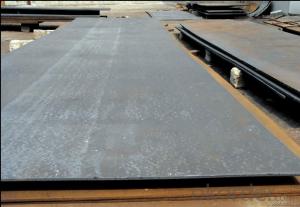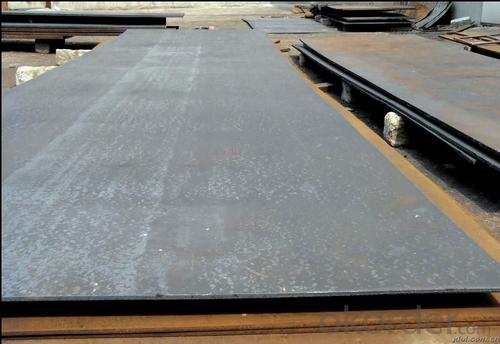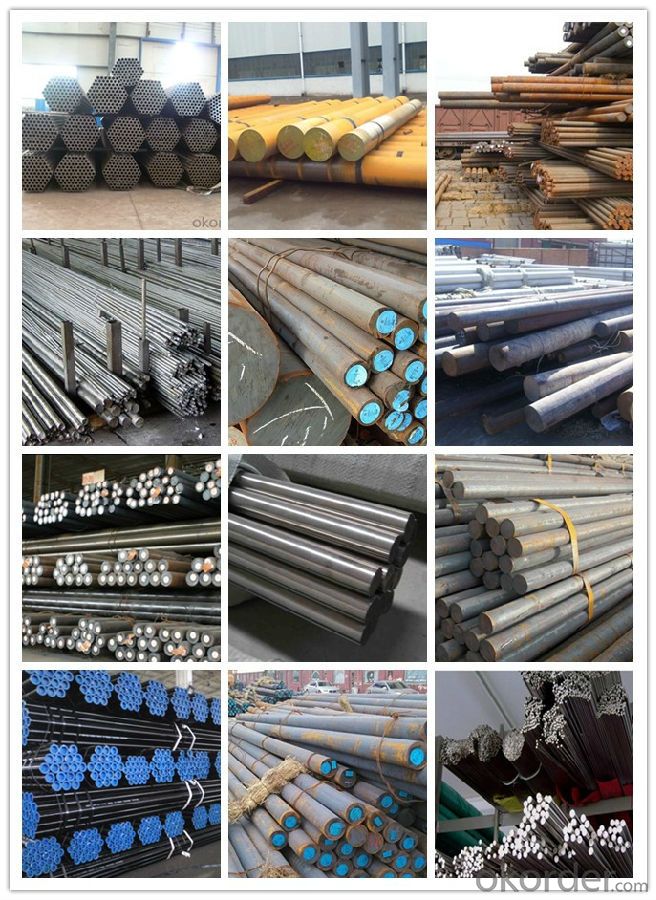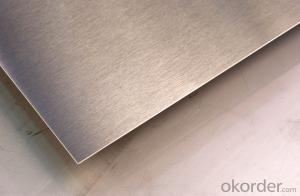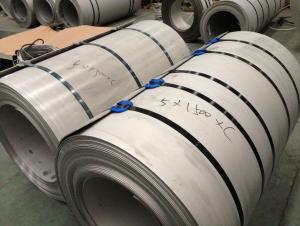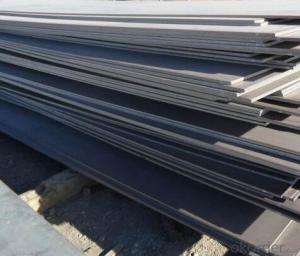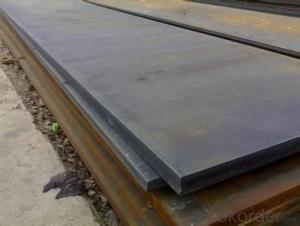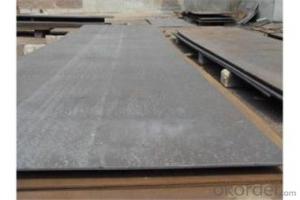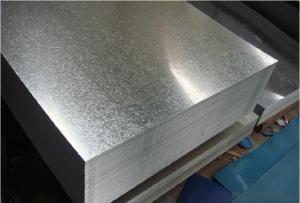Hot Rolled S136/ DIN1.2316 Steel Plates
- Loading Port:
- China main port
- Payment Terms:
- TT OR LC
- Min Order Qty:
- 30 m.t.
- Supply Capability:
- 10000 m.t./month
OKorder Service Pledge
OKorder Financial Service
You Might Also Like
Specification
S136/DIN1.2316 steel plates description:
Chemical composition(%):
C | Si | Mn | Cr | P | S |
0.36-0.45 | ≤0.60 | ≤0.80 | 12.00-14.00 | ≤0.35 | ≤0.03 |
Delivery Condition:
Annealed Hardness: HBS≤ 229
Quenching Hardness: HRC=31-35
Forged + Annealed + Machining (Peeled/Turned)
Available sizes:
Round bar size: 60mm to 350mm
Thickness: 20-300mm
Width: 205-610mm
Length: 2000-5800mm
Application of plastic mould s136 steel plate :
widely use for making of Mirror mould /plate suitable for PVC,PP,A, EP,PC,PMMA plastic mould and The food industry mechanical components
characteristics of plastic s136 steel plate :
1). Excellent corrosion resistance, Belong to medial carbon high chrome Marten site shape stainless steel
2). Good abrasion resistance, High purity, good performance of high mirror polishing, anti-acid, anti-rust after heat- treatment
3). Excellent mechanical processing
4). Hardened with excellent stability
5). Resistance for erosive attack
6). Low deformation rate.
Product show
Workshop show
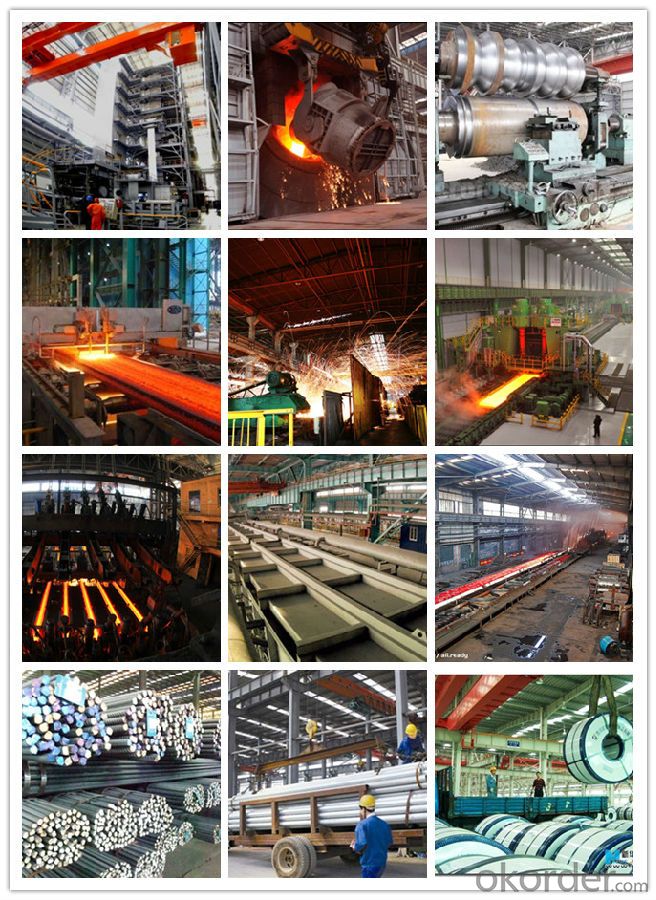
Shipping
1. FedEx/DHL/UPS/TNT for samples, Door-to-Door;
2. By Air or by Sea for batch goods, for FCL; Airport/ Port receiving;
3. Customers specifying freight forwarders or negotiable shipping methods!
Delivery Time: 3-7 days for samples; 5-25 days for batch goods.
Payment Terms
1.Payment: T/T, L/C, Western Union, MoneyGram,PayPal; 30% deposits; 70% balance before delivery.
2.MOQ: 1pcs
3.Warranty : 3 years
4.Package Informations: 1) EXPORT, In 20 feet (GW 25 ton) or 40 feet Container (GW 25 ton)
2)as customer's requirement
Why choose us?
(1) The leading exporter in China special steel industry.
(2) Large stocks for various sizes, fast delivery date.
(3) Good business relationship with China famous factories.
(4) More than 7 years steel exporting experience.
(5) Good after-sales service guarantee.
- Q: How does special steel contribute to the marine industry?
- The marine industry greatly relies on special steel due to its exceptional strength, durability, and corrosion resistance, which are vital qualities for various marine applications. A significant role of special steel in the marine industry lies in the building of ships and submarines. These vessels face harsh environmental conditions, such as exposure to saltwater, extreme temperatures, and high pressures. Special steel, such as high-strength low-alloy (HSLA) steel or stainless steel, ensures the structural integrity of these vessels and improves their overall performance. The high strength-to-weight ratio of the steel allows for the creation of lighter yet sturdy hulls, enabling ships and submarines to navigate rough seas more effectively. In addition, special steel is extensively used in marine equipment and components. For instance, it is utilized in the manufacturing of propeller shafts, rudders, and other crucial parts that need to withstand the forces exerted by water. Stainless steel, with its corrosion-resistant properties, is ideal for various marine fittings like valves, fasteners, and pipes, guaranteeing longevity and efficient operation in highly corrosive marine environments. Furthermore, special steel finds applications in offshore structures such as oil rigs, platforms, and wind turbines. These structures must endure harsh conditions like strong ocean currents, heavy waves, and corrosive saltwater. Special steel grades like carbon-manganese steel or weathering steel are specifically designed to provide exceptional strength and corrosion resistance, making them suitable for offshore installations. Lastly, in the marine industry, special steel is indispensable for fabricating marine containers and cargo handling equipment. The steel's high tensile strength and impact resistance ensure the safe transportation of goods by sea, making sure that containers can withstand dynamic forces during shipping and protect the cargo from water intrusion. All in all, special steel's unique properties make it an essential material in the marine industry. Its strength, durability, and corrosion resistance significantly contribute to the construction of ships, submarines, offshore structures, marine equipment, and cargo containers, enabling safe and efficient maritime operations.
- Q: Can special steel be cast?
- Yes, special steel can be cast.
- Q: What are the factors that affect the fatigue strength of special steel?
- There are several factors that can affect the fatigue strength of special steel. These include the composition and microstructure of the steel, the presence of defects or impurities, the surface finish and treatment, the loading conditions and stress levels, and the temperature and environmental conditions in which the steel operates. Additionally, factors such as heat treatment, alloying elements, and manufacturing processes can also impact the fatigue strength of special steel.
- Q: How does special steel contribute to the agriculture industry?
- Special steel plays a crucial role in the agriculture industry by providing durable and high-performance materials for various agricultural machinery and equipment. These steels are specifically designed to withstand the harsh conditions and heavy workloads encountered in farming operations, resulting in increased efficiency and productivity. One of the primary applications of special steel in agriculture is in the manufacturing of tillage equipment such as plows, cultivators, and harrows. These implements require robust materials that can withstand the abrasion and impact of soil and rocks. Special steel provides the necessary strength and hardness to ensure that these implements can effectively break up the soil, improve soil quality, and prepare the land for planting. Additionally, special steel is extensively used in the production of machinery for planting, harvesting, and processing agricultural products. For instance, combine harvesters, which are vital for large-scale crop harvesting, heavily rely on special steel components for their cutting systems, threshing mechanisms, and grain handling systems. By using special steel, these machines can efficiently handle the demanding tasks of crop collection, separation, and storage. Moreover, special steel contributes to the agriculture industry by enhancing the longevity and reliability of equipment. Agricultural machinery operates in challenging environments that expose them to corrosive elements, moisture, and extreme temperatures. Special steel, often coated with protective layers, offers resistance against corrosion, rust, and wear, ultimately extending the lifespan of agricultural equipment. Furthermore, the use of special steel in the manufacturing of machinery leads to improved precision and accuracy in agricultural operations. Modern farming techniques increasingly rely on precision agriculture, which involves using advanced technologies to optimize productivity, reduce waste, and conserve resources. Special steel components enable more precise movements, better control, and increased accuracy in machinery, leading to improved efficiency and minimizing waste. Overall, special steel is vital to the agriculture industry as it provides the necessary strength, durability, and precision required for various agricultural machinery and equipment. By utilizing these high-quality materials, farmers can enhance productivity, reduce downtime, and achieve sustainable farming practices.
- Q: Can special steel be used for food processing equipment?
- Yes, special steel can be used for food processing equipment. Special steel, such as stainless steel, is often preferred in the food industry due to its hygienic properties, resistance to corrosion, and durability. It is commonly used in various food processing equipment such as mixers, slicers, cutters, and storage tanks to ensure safe and efficient food production.
- Q: What are the different chemical resistance grades of special steel?
- The different chemical resistance grades of special steel include austenitic stainless steel, duplex stainless steel, super duplex stainless steel, and high-alloy stainless steel.
- Q: How is special steel used in the construction of buildings and bridges?
- Special steel is commonly used in the construction of buildings and bridges due to its exceptional strength, durability, and resistance to corrosion. This type of steel possesses unique properties that make it ideal for structural components such as beams, columns, and reinforcement bars. Its high tensile strength allows for the creation of large, open spaces in buildings and longer spans in bridges, reducing the need for excessive support columns. Additionally, special steel's ability to withstand extreme weather conditions and corrosive environments ensures the longevity and safety of these structures.
- Q: Can special steel be used in food processing applications?
- Yes, special steel can be used in food processing applications. Special steel, such as stainless steel, is commonly used in the food industry due to its excellent corrosion resistance, hygienic properties, and durability. It is safe for food contact, easy to clean, and does not react with acidic or alkaline substances.
- Q: How does special steel perform under extreme temperatures?
- Special steel is specifically designed to perform well under extreme temperatures. It exhibits excellent strength, hardness, and resistance to heat, making it highly suitable for applications that involve extreme heat or cold. At high temperatures, special steel maintains its structural integrity, which means it does not undergo significant deformation or loss of strength. It retains its hardness and dimensional stability, ensuring that it can withstand the extreme conditions without compromising its performance. Special steel also demonstrates exceptional resistance to thermal expansion and contraction, which is crucial when exposed to extreme temperature changes. This property allows the steel to expand and contract uniformly, minimizing the risk of cracking or other forms of damage. Moreover, special steel possesses excellent heat resistance, enabling it to retain its mechanical properties even at elevated temperatures. It exhibits high creep resistance, which is the ability to resist deformation under constant stress at high temperatures. This ensures that the steel can withstand prolonged exposure to extreme heat without experiencing failure or degradation. In addition to its impressive performance at high temperatures, special steel also performs well under extremely low temperatures. It maintains its toughness and ductility, with minimal risk of embrittlement or cracking. This makes it suitable for applications in cryogenic environments, such as in the aerospace or medical industries. Overall, special steel is designed to excel under extreme temperatures, offering exceptional strength, hardness, and resistance to heat. Its ability to maintain its structural integrity, resist thermal expansion and contraction, and withstand high or low temperatures makes it a reliable choice for various demanding applications.
- Q: Can special steel be used in the packaging industry?
- Yes, special steel can be used in the packaging industry. Special steel alloys, such as stainless steel, offer excellent durability, corrosion resistance, and strength, making them suitable for manufacturing packaging materials and machinery. They are commonly used in producing containers, drums, cans, and machinery components for packaging applications.
Send your message to us
Hot Rolled S136/ DIN1.2316 Steel Plates
- Loading Port:
- China main port
- Payment Terms:
- TT OR LC
- Min Order Qty:
- 30 m.t.
- Supply Capability:
- 10000 m.t./month
OKorder Service Pledge
OKorder Financial Service
Similar products
Hot products
Hot Searches
Related keywords
